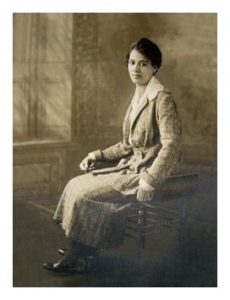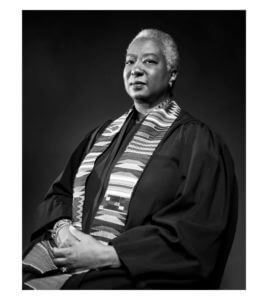During Black History Month this year, we’re running a series of posts looking at African American leaders in both the past and present. Today’s entry focuses on two pioneering women in the field of Minnesota law.

Attorney Lena O. Smith
“I’m used to doing the right thing without regard for myself. Of course battles leave their scars but I’m willing to make the sacrifice. I think it is my duty.”
Lena Olive Smith, 1932
In 1930, a black family moved into a white neighborhood in southern Minneapolis. The Lee family faced immediate and explosive pressure to move: thousands of white people gathered outside the house nightly, yelling threats as police stood by passively. The Lees saw no other solution than to sell the house and flee.
Lena Olive Smith saw otherwise. A prominent civil rights attorney and one of the first black women to practice in the country, she refused to let racist mobs supersede the law. She advised the Lees to hold firm, and advocated for them to press and government officials. After almost a month, the crowds finally dispersed. It was the last white mob demonstration against housing integration in the state.
Smith founded the Minneapolis Urban League and was the first female president of the NAACP’s Minneapolis chapter. She never stopped fighting for equal protection, access to housing, union rights and more for African Americans.

Judge Pamela Alexander
“The wheels of justice really do move slowly. In this case, much too slowly.”
Judge Pamela Alexander, 2007
The law has remained slippery for black Minnesotans: freedom that exists on paper often vanishes in practice. Pamela Alexander, the first black female judge in Minnesota, has upheld equality and worked to eliminate racial bias in the court system, even at personal cost to her decades-long career.
In the 1990s, Alexander ruled against a race-based drug law that unfairly targeted black defendants – though the decision earned her some political enemies, and likely cost her the chance of becoming a federal judge.
In 1993 she joined the Racial Bias Task Force Report, which prompted court overhauls and required the reporting of race on court data metrics. Having that information has improved pretrial bail practices, ensuring that decisions are not based on race.
Alexander, who has received more than 50 community service awards, retired in 2018. But the work of pioneers like Alexander and Smith continues every day, ensuring the freedom sought by centuries of black Minnesotans is reflected – and upheld – by our laws.
